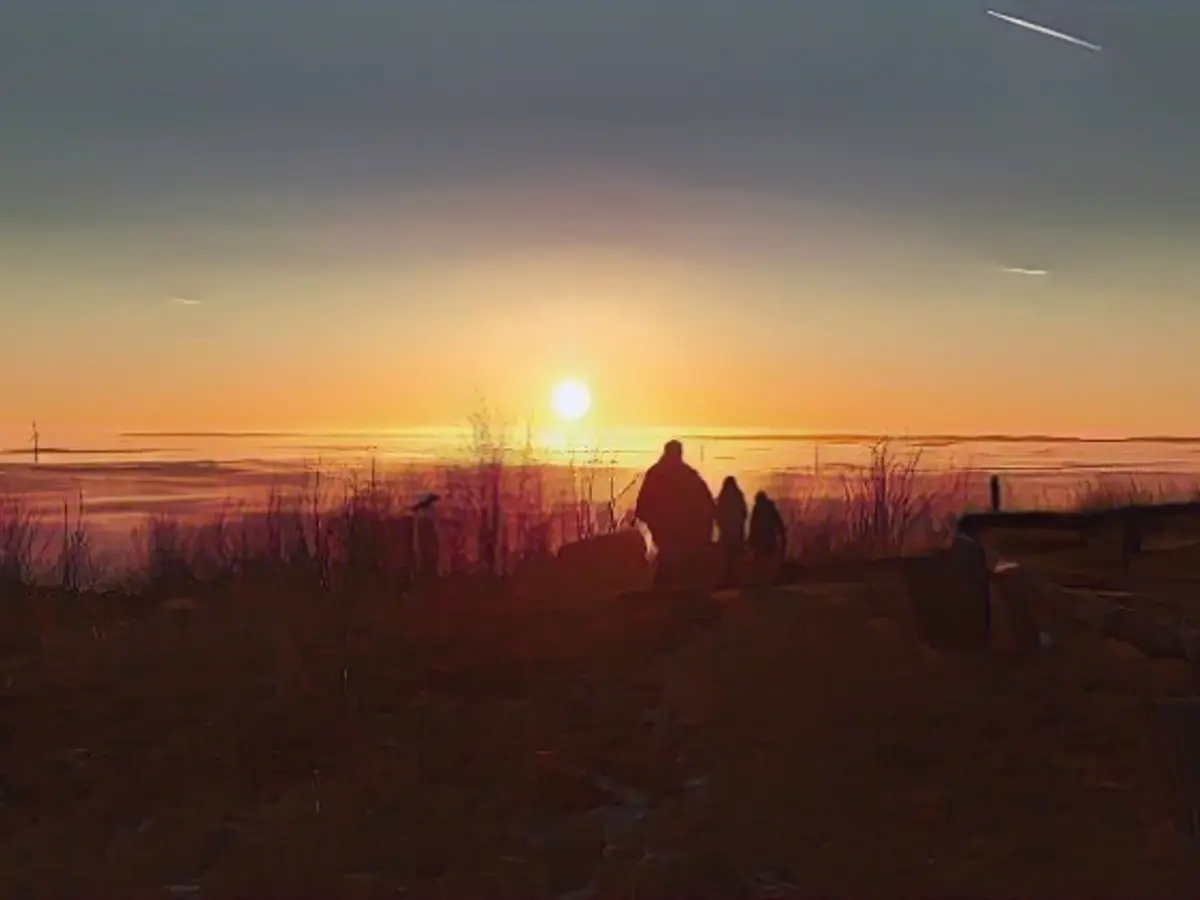What you didn't know about the winter solstice
The days reach their lowest point: there are only just over 7 hours of light at the northernmost tip of Germany. The winter solstice brings the shortest day of the year and heralds the start of winter on the calendar. But the phenomenon of the equation of time creates unexpected effects.
Summer is finally here - at least in the southern hemisphere of the earth: on December 22 at midday, the sun is at its zenith further south than ever before this year - exactly above the Tropic of Capricorn. This runs through countries such as Argentina, Namibia, Botswana and Australia. For us, however, this means that at no time of the year is the sun lower in the sky.
This phenomenon is called the winter solstice - it is followed by the shortest day of the year in Germany. In Berlin, it is only 7 hours and 39 minutes long. This is around 9 hours shorter than the longest day of the year, which is usually on June 21. The winter solstice marks the calendar start of winter. But this also has a positive side, because the days get longer again afterwards.
Why is this the case? The tilt of the Earth's axis is to blame. It is tilted by around 23.4 degrees, which means that different parts of its surface receive different amounts of sunlight over the course of the year. During the winter solstice, the tilt is such that the North Pole is furthest away from the sun. This is always the case on December 21 or 22 - it varies from year to year.
Curious facts about the solstice
The shortest day varies greatly in length depending on the region in Germany: in List on the island of Sylt, it is more than an hour shorter than in Oberstdorf, the southernmost town in Germany. The rule behind this: The further north a place is, the shorter the day. North of the Arctic Circle, the sun doesn't even rise.
However, December 22 is not the day with the latest sunrise and earliest sunset. A few days later, the sun rises about two minutes later. The earliest sunset is a few days before the winter solstice. The reason for this is the phenomenon of equation of time: the "true solar time" is not constant, the period between two solar highs at one noon and the next varies throughout the year. These fluctuations are equalized with the "mean solar time".
The result: on the days before the winter solstice, the days are longer, but the sun is already at its highest point before 12 noon. This results in earlier sunsets. The opposite is true at the end of December, when the sun is at its highest well after 12 noon.
Winter since the beginning of December
Interestingly, from a meteorological point of view, winter already begins on December 1, as meteorologists use standardized time periods for the seasons for their records and analyses. The astronomical start of winter, on the other hand, which coincides with the winter solstice, is based on the position of the earth in relation to the sun.
The phenomenon of the winter solstice has also left its mark on many cultures. In many places, the time is regarded as the triumph of light over darkness. The Lucia Festival is celebrated in Scandinavia and the Dongzhi Festival in East Asia. In Iran and in historically Iranian regions, the Yalda Night is celebrated on the winter solstice. Even in Antarctica, researchers there celebrate midwinter - but then it is midsummer.
And here? The proximity of Christmas on December 25 to the winter solstice is striking. In Christianity, this celebrates the birth of Jesus - but there is nothing about the date in the Bible. The New Testament does not even say what time of year it was. There is a theory that Christmas is a reinterpretation of an earlier pagan festival celebrating the winter solstice, the birth of the sun god Sol invictus. However, critics believe that this festival is not really sufficiently documented. Various hypotheses circulate today about the date of Christmas - the possible link to the winter solstice is just one of them.
Read also:
- This will change in December
- Attacks on ships in the Red Sea: shipping companies avoid important trade route
- Houthi rebels want to launch further attacks despite international coalition
- USA forms military coalition against Houthi attacks on ships in the Red Sea
In many educational programs, the winter solstice is a topic of interest in astronomy classes. This astronomical event marks the shortest day of the year and signifies the start of winter on the calendar. Furthermore, astronomy helps us understand the concept of the winter solstice, such as the tilt of Earth's axis and its impact on the amount of sunlight each region receives throughout the year.
Source: www.ntv.de







